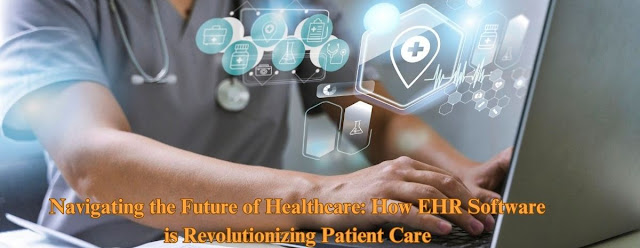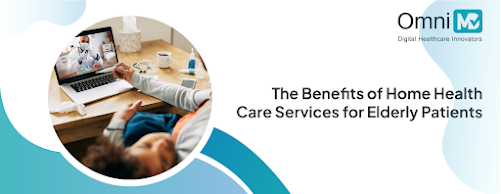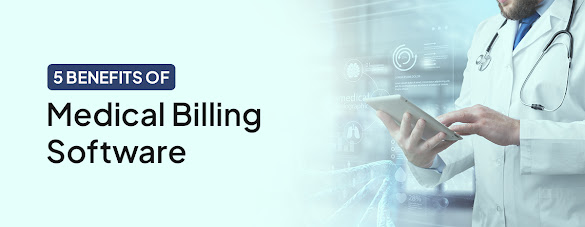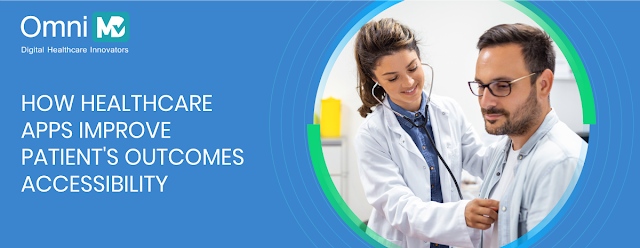Navigating the Future of Healthcare: How EHR Software is Revolutionizing Patient Care
Before introducing
electronic health records (EHRs), the healthcare industry depended on paper
health records. This process could have been more efficient and prone to errors.
However, with the introduction of Electronic Health Records Software,
there has been a breakthrough in the healthcare sector. Along with a successful
transition from papers to computers, EHRs provide valuable insight into
understanding complex diseases and assessing better treatment options. According
to a recent study, 75% of healthcare providers reported that EHRs empower them
better to improve patient care. Let us see how EHR software is revolutionizing
patient care by navigating the future of healthcare.
How the Healthcare Sector Leverages
EHRs
EHR is often used interchangeably
with a similar term—Electronic medical records (EMRs). EHRs provide numerous
advantages for healthcare practices. Healthcare providers can share medical
information through interconnected networks and record management platforms. So,
the healthcare sector now leverages EHRs for better patient care management by
improving patient care quality and streamlining operations. Though providers
may have lagged in the past when it comes to patient care and health records, EHR
software is revolutionizing patient care in the following ways:
Provides Real-time Data Access
Since EHRs can provide real-time
data access, these systems can immensely improve patient care. EHR software
offers real-time access to medical histories, test results, previous
treatments, and other data. This can benefit patients and promote rapid
recovery while preventing prolonged hospital stays.
Positively Impacts Healthcare
Outcomes
EHR systems can provide immediate
access to a patient’s healthcare information. This can help healthcare
providers in making quick and informed decisions when it comes to treatment
protocols. These systems can help save time as data does not have to be
manually retrieved. Also, the time saved can be diverted to direct patient
care, effectively boosting healthcare outcomes.
Since EHRs can access information
such as detailed patient history and vaccination records, healthcare
practitioners can easily track trends and predict potential health issues.
Besides, they can make preventive care recommendations. Such initiatives can
help enhance patient health outcomes. Implementing preventative care measures
can help manage chronic diseases. Unfortunately, these are a leading cause of
death in the United States.
Enhances Communication Between
Patients and Providers
So that seamless communication
between patients and healthcare providers can be ensured, EHR systems serve as a
vital communication bridge. These systems quickly and efficiently exchange
information, substantially enhancing the patient-provider relationship.
Impacts Patient-Care Quality
Enhanced communication also
brings many benefits to patient care. Providers can instantly share and access
medical records, test results, and prescriptions, making the patient care
process more efficient and less error-prone. At the same time, this simplifies
the patient’s journey, so they do not have to carry paper records or remember
complicated medical histories. Moreover, as doctors have easier access to
patient records and medical history, they can better understand the patient’s
health condition, which can be beneficial for managing chronic health diseases.
Reduces Medical Errors
The dynamic nature of EHRs helps
reduce medical errors, which are crucial in enhancing patient safety and
quality in healthcare. For example, illegible handwriting is one of the key
contributors to medical errors, which can be eliminated with the help of
digitization of medical records. A Journal of Healthcare Information Management
report suggests that hospitals that fully implement EHR systems have witnessed
a 30% reduction in medication errors. Thus, EHRs can create a safer healthcare
environment conducive to all.
Improves Healthcare Workflows
The journey of a patient from
admission to discharge involves several workflows. EHR systems help streamline
these workflows and create a more effective, productive, and efficient
healthcare environment. This can directly translate to improved quality of
patient care. EHR service software can integrate diverse healthcare
functions, which can help ensure a smooth flow of information between
departments. This can eliminate duplication and reduce the time spent on
mundane administrative responsibilities. Improved healthcare workflows mean fewer
patient waiting times and faster treatments, improving healthcare outcomes.
Empowers Preventative Care
Since preventative care is a
critical component of healthcare, it is intended to prevent illness or detect
it early on. This is where EHRs can play a pivotal role. Real-time patient data
and help healthcare providers manage patient health. This can strengthen
initiatives regarding patient care on a proactive basis.
Conclusion
Gone are the days when digital
records were just copies of paper records. Today, EHR systems are much more
powerful. They are transforming patient care and paving the way for the future
of healthcare. EHR vendors need to leverage the potential of EHR systems to
deliver safe and efficient care centered around the patient. Let the future of
healthcare be bright and ensure a healthy lot for one and all. OmniMD’s EHR
system helps you manage your workflows, manage documents, and visualize
complete patient records. Besides, it helps prescribe the proper medication,
reminds about clinical summaries, and provides comprehensive analytics. Contact
us to know more!




Comments
Post a Comment